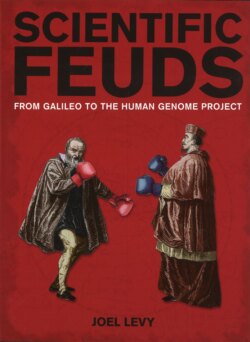Читать книгу Professional Hairstyling - Joel Levy - Страница 26
На сайте Литреса книга снята с продажи.
OPENING PANDORA’S BOX: THE REACTION TO DARWIN
ОглавлениеDarwin had been incubating his theory of evolution through natural selection for decades before he was finally pushed into publication by Alfred Russel Wallace’s (see pages 186–191) independent arrival at a similar theory. One reason he had held off for so long was because he knew it would open a Pandora’s box of reaction. In the event, the best he could do was marshal his arguments and evidence with minute care, and admit that there were a few gaps where he must trust to the future emergence of more evidence.
Wilberforce was one of the first to attack Darwin. His critique was powerful, pointing out flaws in Darwin’s science – the lack of fossil evidence of transitional forms, for instance – and highlighting the disturbing social and moral implications of the theory. This line of attack is still pursued by religious critics of Darwinism today. In 2009, for instance, Christoph Schönborn, Cardinal Archbishop of Vienna, argued: ‘The question of evolutionism and the economic crisis are very closely linked. What we can call the ideological Darwinist concept that the stronger survives has led to the economic situation we’re in today.’
The religious response to Darwin’s theory has been diverse and complex since it first emerged. The Catholic Church made little fuss about accepting the theory, partly because in Catholicism religious authority does not stem solely from scriptural sources. Many stripes of Protestant religion have also sought to accommodate Darwinism and there are many who argue that there is no contradiction between being a religious believer and a scientist, for instance. But there are also many at the extremes of religion, particularly in fundamentalist Christianity but increasingly in the Islamic world too, who loudly protest that any conception of evolution is at odds with religious belief, and it is these strident voices who have dragged Darwin into what is often referred to as the ‘culture wars’.
‘That man wants to claim my pedigree,’ complains the Defrauded Gorilla to animal rights campaigner Henry Bergh in a satirical cartoon of 1871. ‘He says he is one of my descendants.’ ‘Now, Mr Darwin,’ replies Mr Bergh, ‘How could you insult him so?’
The barking and yelping soon began. Among Darwin’s many detractors was Samuel Wilberforce, Bishop of Oxford. Son of the famous anti-slavery campaigner, Wilberforce was a high-profile public figure, a clergyman not afraid to weigh in to scientific debates. He published a dismissive review of Origin in June 1860, arguing that ‘man’s power of articulate speech; man’s gift of reason; man’s free will and responsibility ... all are equally and utterly irreconcilable with the degrading notion of the brute origin [of humankind].’ ‘The principle of natural selection,’ he concluded, was ‘a dishonouring view of nature ... absolutely incompatible with the word of God.’
‘A man has no reason to be ashamed of having an ape for his grandfather. If there were an ancestor whom I should feel shame in recalling it would rather be a man who plunges into scientific questions with which he has no real acquaintance, only to obscure them by an aimless rhetoric.’
ONE VERSION OF T.H. HUXLEY’S LEGENDARY REJOINDER TO BISHOP WILBERFORCE, 30 JUNE 1860.
